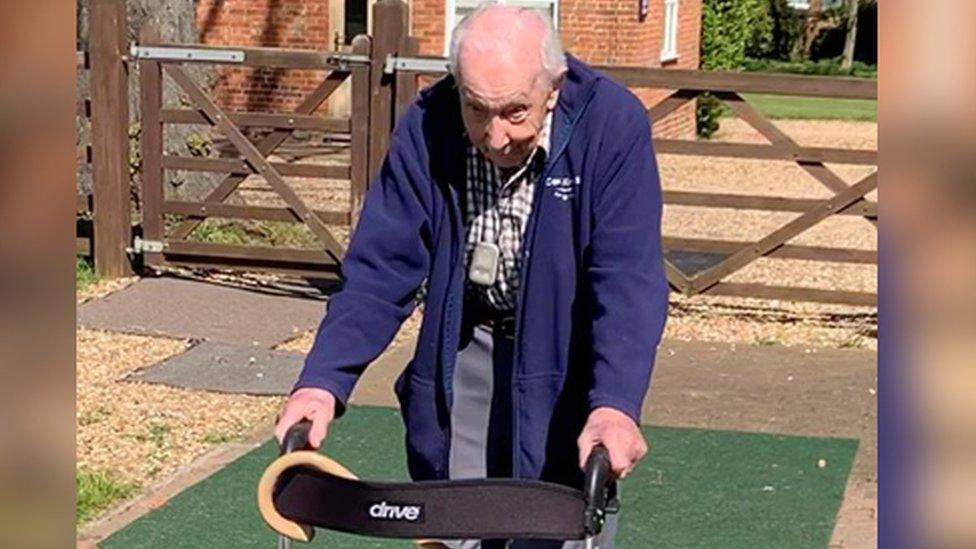Capt Sir Tom Moore: Where was the money spent?
- Published
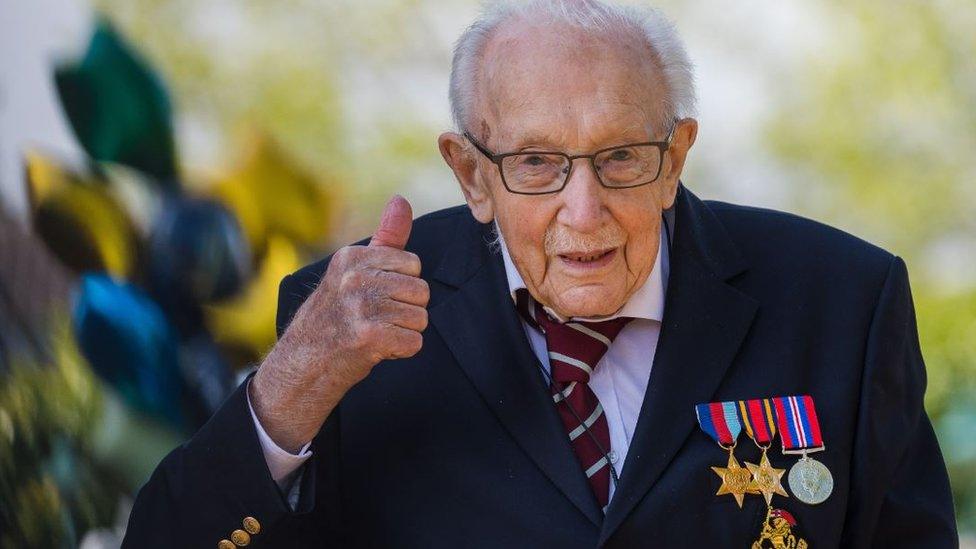
Capt Sir Tom Moore was among thousands of people who helped raise £162m raised for the Urgent Covid-19 Appeal
Four years ago, the nation went into lockdown and rallied to support health workers during their darkest hours of the pandemic.
Launched that same day in March 2020, the NHS Charities Together Urgent Covid-19 Appeal went on to raise more than £162m, with thousands of people getting behind the campaign to help those on the frontline
Six-year-old Frank Mills, who has spina bifida, raised more than £100,000 by walking 10m (33ft), and there were countless bake sales, sponsored runs, sky-dives, along with celebrity-backed exhibitions, books and music releases.
The camaraderie was most famously displayed in the determined efforts of the late Captain Sir Tom Moore, who walked 100 laps of his garden in Bedfordshire.
A more recent investigation by the Charity Commission into the Captain Tom Foundation and a planning row have threatened to tarnish his legacy, so it is perhaps easy to forget that his inspiring campaign contributed £39m.
Almost one million NHS workers and thousands of patients and community projects have benefited from the appeal, with health-related causes in the East of England receiving £10.3m. One of the beneficiaries described the money as a "lifeline".
Where was the money spent and how has it made a difference?
'Huge privilege'
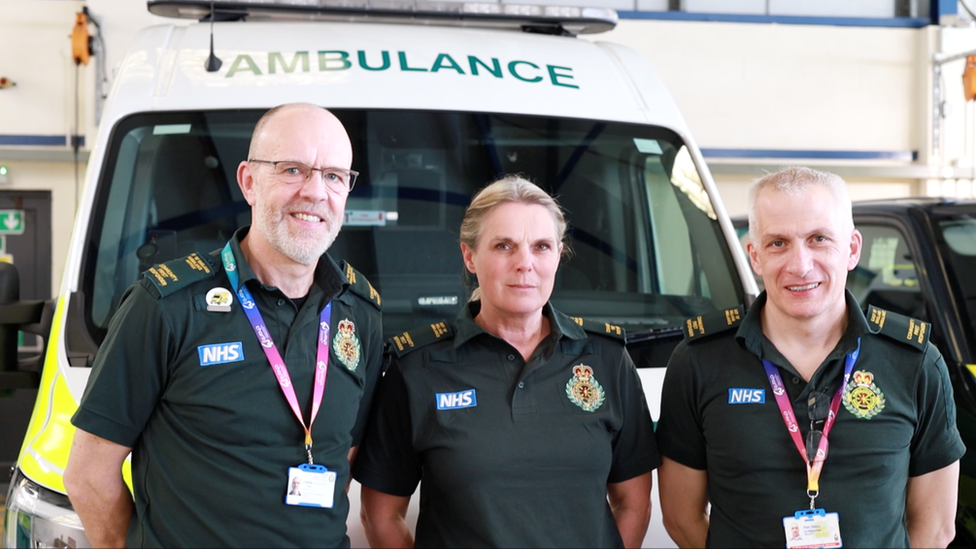
Chris Lye, Lisa Kenton and Paul Cherry say they are proud to be community first responders
It can be any time of day when community first responders Chris Lye, Lisa Kenyon and Paul Cherry get the call to action.
They are part of a small army of volunteers who are trained to attend emergency calls in conjunction with the East of England Ambulance Service.
The roving service spans across Norfolk, Suffolk, Essex, Cambridgeshire, Bedfordshire and Hertfordshire and has been a lifeline for countless people.
Chris said he got involved because a mobile service could be the difference between life and death in the rural community he lives in.
"I get quite emotional about it," he says. "It feels like such a huge privilege to be in a situation where someone is having a horrendous day and you're there to support them.
"You need to be very versatile in how you approach certain situations. I have gone and interacted with many different people who, in normal life, I wouldn't have and that has been very eye-opening."
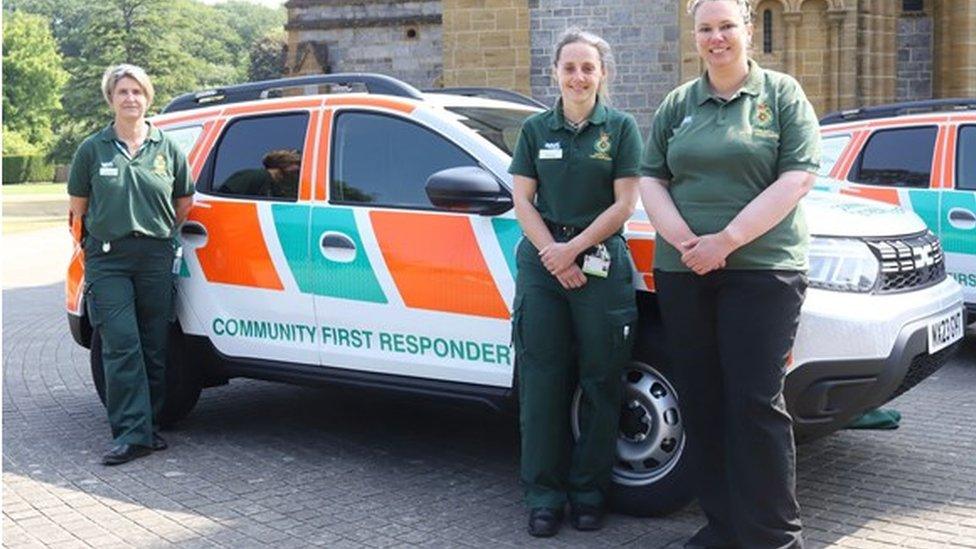
Community first responder schemes are used across England, including in the South Western Ambulance Service
The East of England Ambulance Charity, which supports the trust, was granted £508,000 to keep its responder cars on the road.
In 2023 alone, the six vehicles saw just under 3,500 patients, with one car used every 150 minutes on average.
"There are times the trust is under exceptional pressure," says fellow volunteer Paul.
"The charity funding allows this car to get out there, it facilitates new people to go out with experienced people and get trained."
Lisa says sometimes a bit of comfort - as well as medical help - is just the tonic needed for patients when the ambulance crew arrives.
"We can then stop and help the family or make a cup of tea; take them to one side, tend to them, reassure them," she says.
"We can ask the neighbour to lock up for them - all the things the crew don't tend to have the time for."
'Complete lifeline'
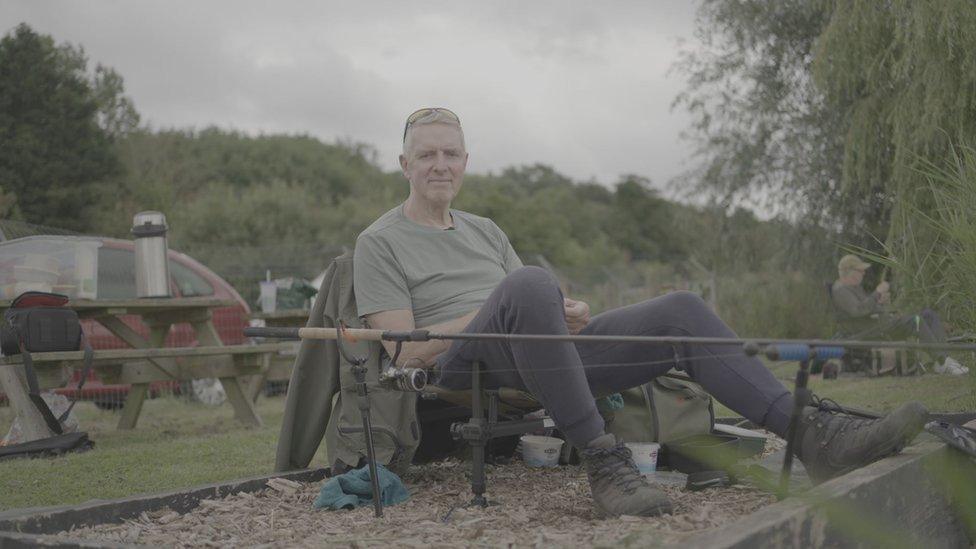
Nick Buck says taking men who are struggling with their mental health out for fishing has helped them unwind
You cannot put a price on life. But, for the Pit Stop project, the £51,000 it received has certainly saved a few.
The scheme, supported by the Norfolk and Norwich Hospital Charity and run by charity MensCraft, helps men who are having suicidal thoughts in Norfolk and Lowestoft, in Suffolk.
The cash injection came as part of a wider £445,000 given to the hospital charity from the urgent Covid appeal.
Nick Buck, a MensCraft co-ordinator, says the investment is a "complete lifeline" for both the charity and those it serves.
"I come from a generation where we don't talk about our feelings - we might get a pat on the back if we've done something well but that was about it," he says.
"It has almost brought a feeling that as a man you can't talk about it, you have to prove yourself."
The group, which regularly attracts almost 30 men, provides a safe space for them to have informal one-to-ones about how they are feeling without the need for a referral.
Nick, who got involved in January 2022 and has since taken on a full-time job with MensCraft, says activities such as walks, baking and fishing are also provided to take people out of the "pressure cooker" of talking about life.
"Without that funding for the year we would have had to look for alternative sources," he explains.
'Above and beyond'
While health workers are buzzing around the hospitals they work in, one person is urging them to slow down for a moment.
Hannah Canning was hired by the North West Anglia NHS Foundation Trust to ensure those looking after the patients were also taking care of themselves.
Her role was funded thanks to £154,000 awarded to the trust's charity to secure a health and wellbeing co-ordinator.
"The bottom line is it makes staff feel valued," Hannah says. "Through Covid they gave their time and their safety."
Schemes run as part of her role have seen money made available for items to brighten up the workplace as well as time set aside to encourage staff to take a breather.
"It is so easy to get weighed down with how the world is at the moment," Hannah explains.
"Our staff are going one million miles per hour and we are showing them that we allow those moments to take five minutes."
Hannah says she has seen an increase in NHS workers reporting a decline in their mental wellbeing and adds without the funding the trust would not have been able to "go above and beyond" for its staff.
"We are providing opportunities for people to be heard and showing that we do understand that there are struggles and people are finding things difficult in these times," she says.

Follow East of England news on Facebook, external, Instagram, external and X, external. Got a story? Email eastofenglandnews@bbc.co.uk or WhatsApp 0800 169 1830
Related topics
- Published15 April
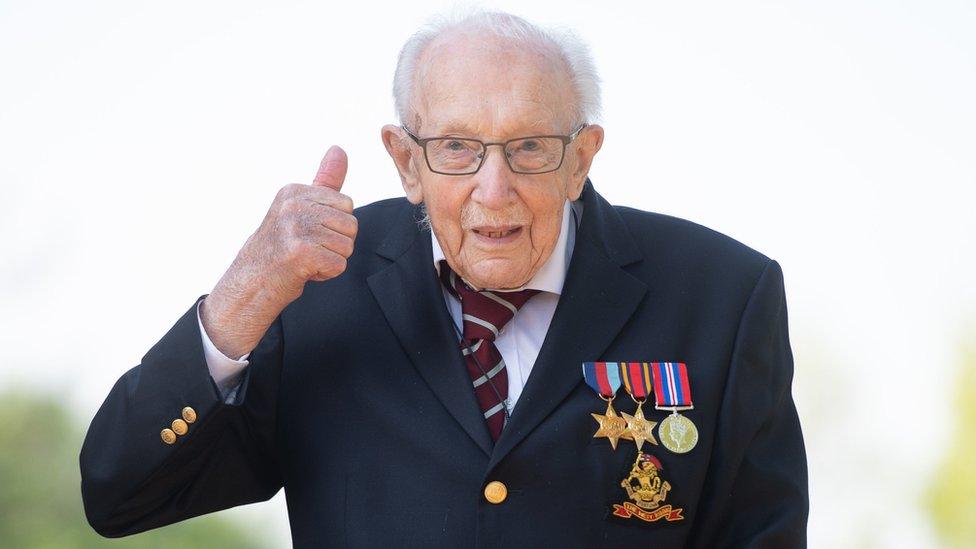
- Published6 July 2023
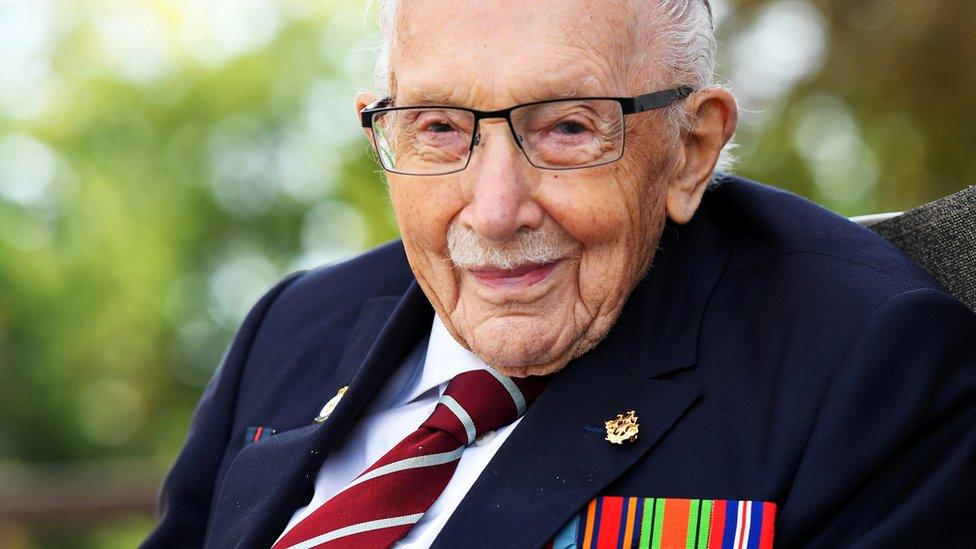
- Published2 February 2021
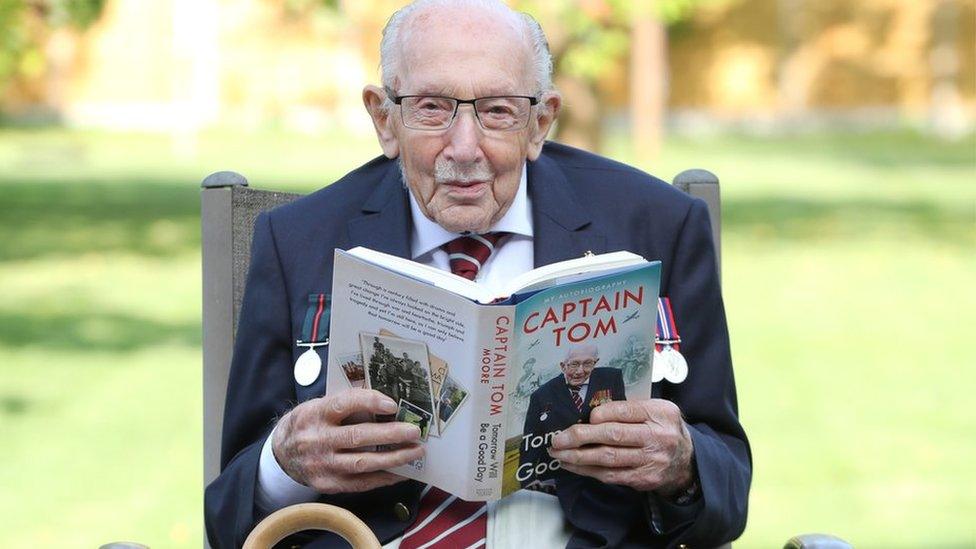
- Published2 February 2021

- Published13 April 2020
